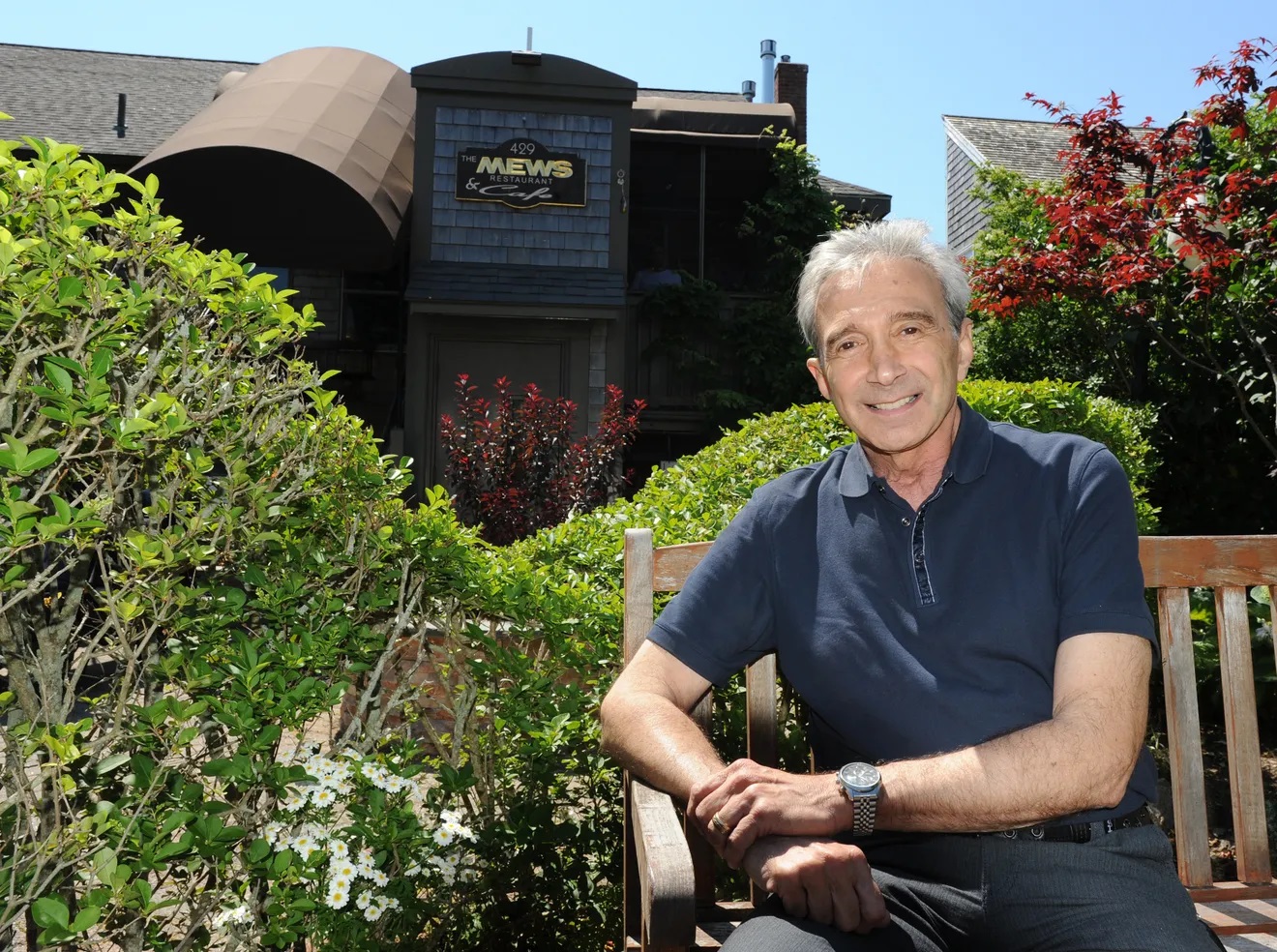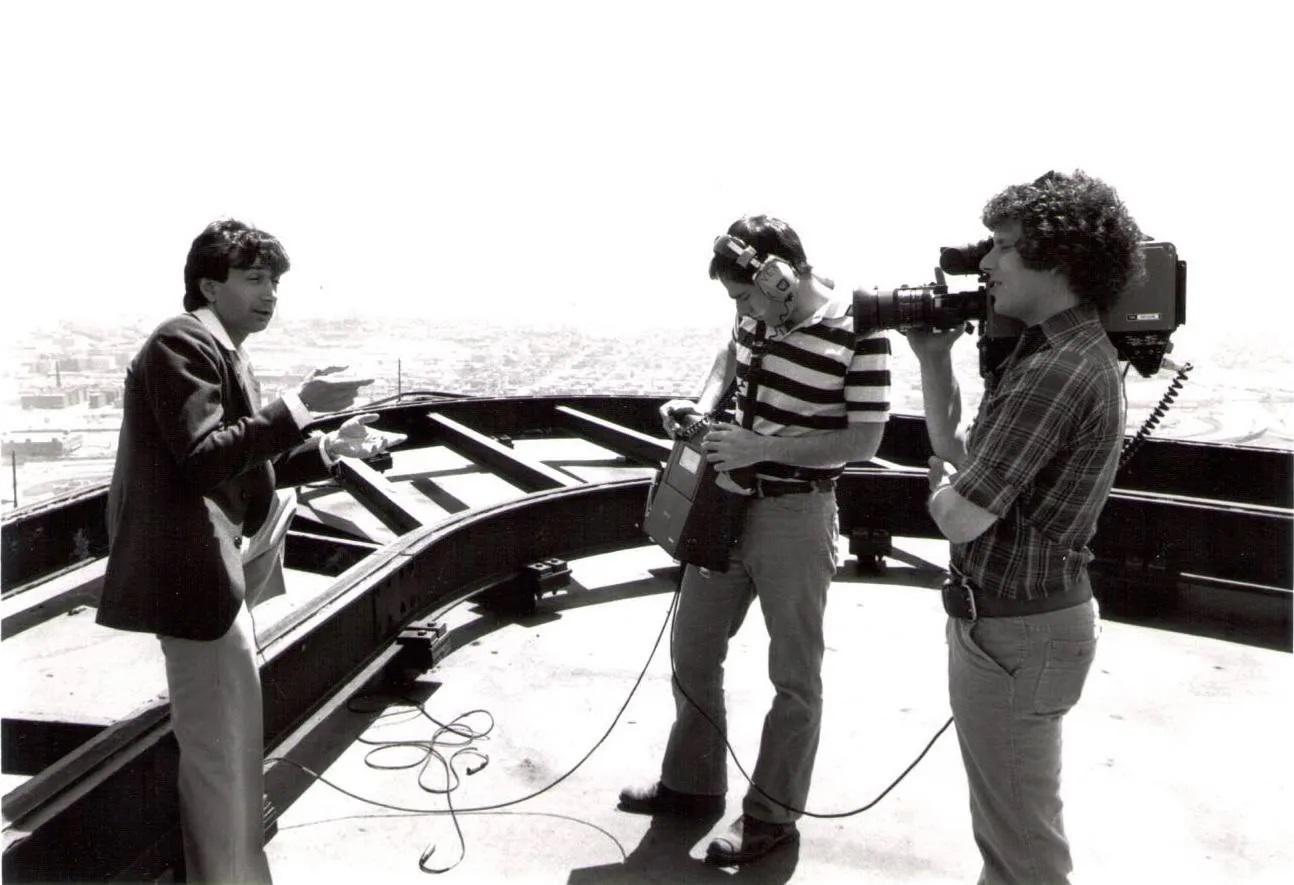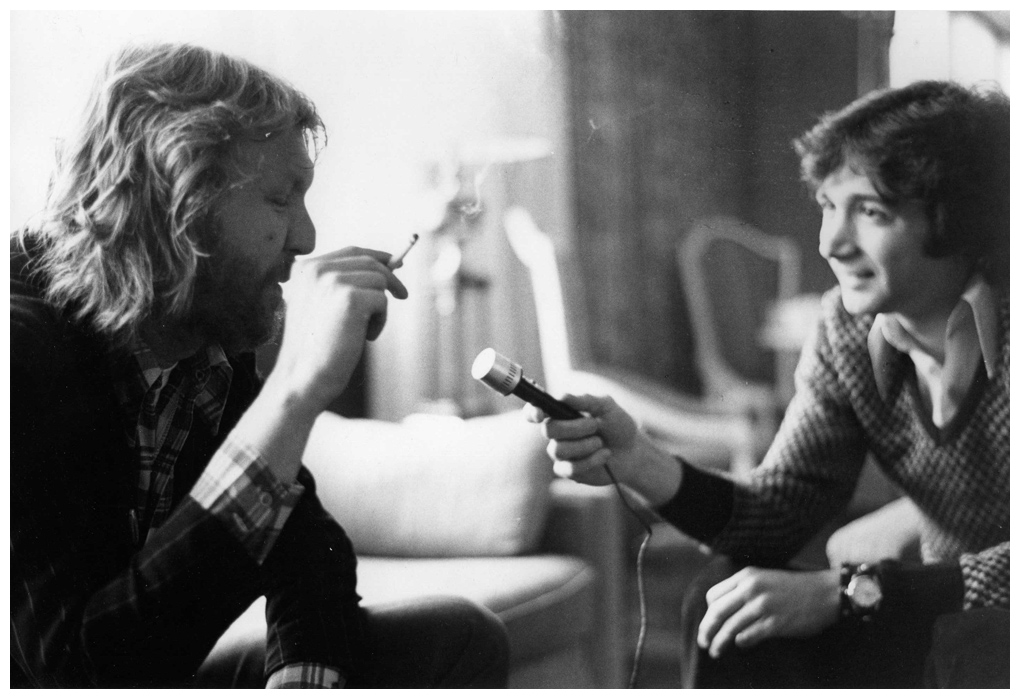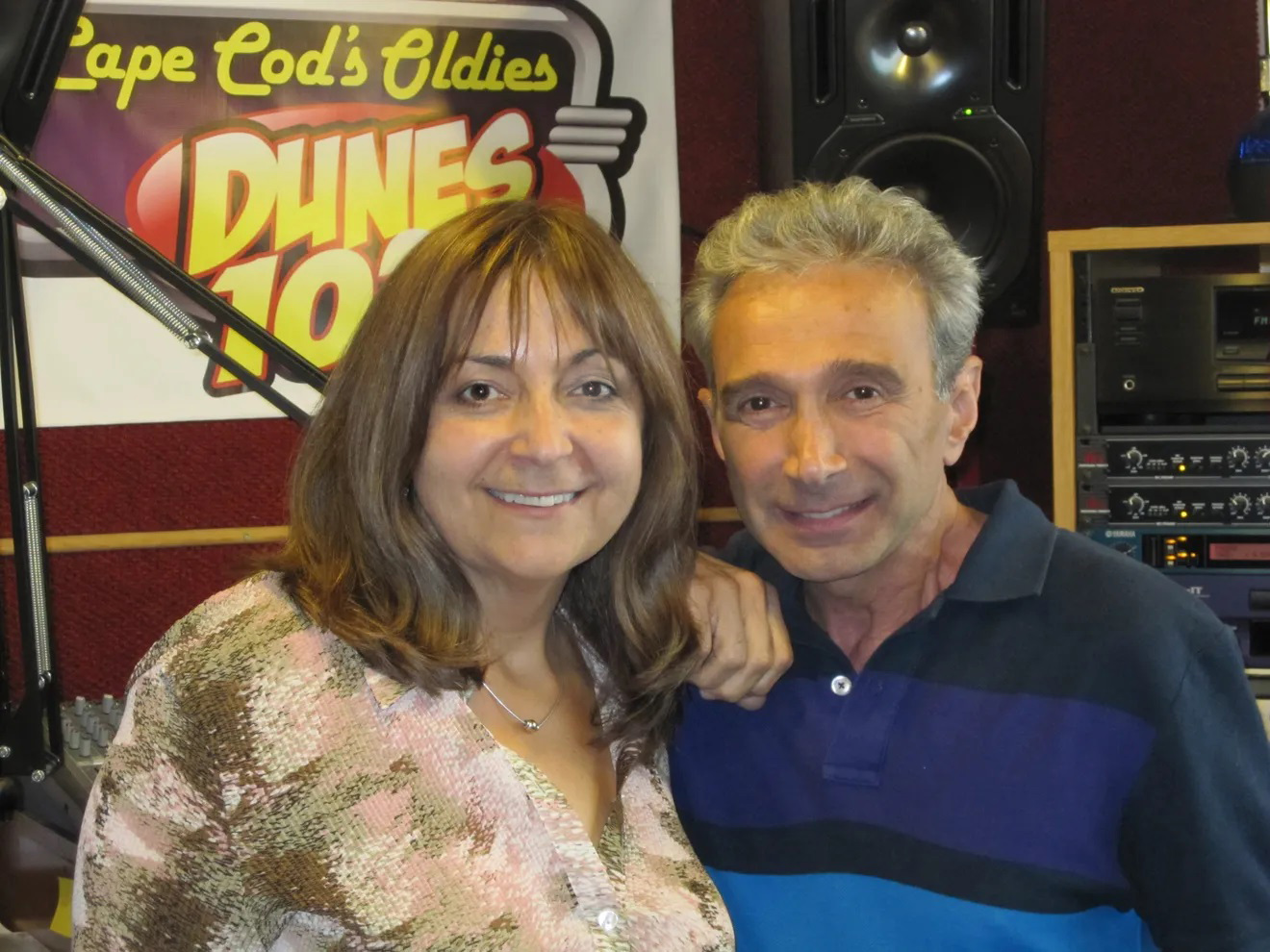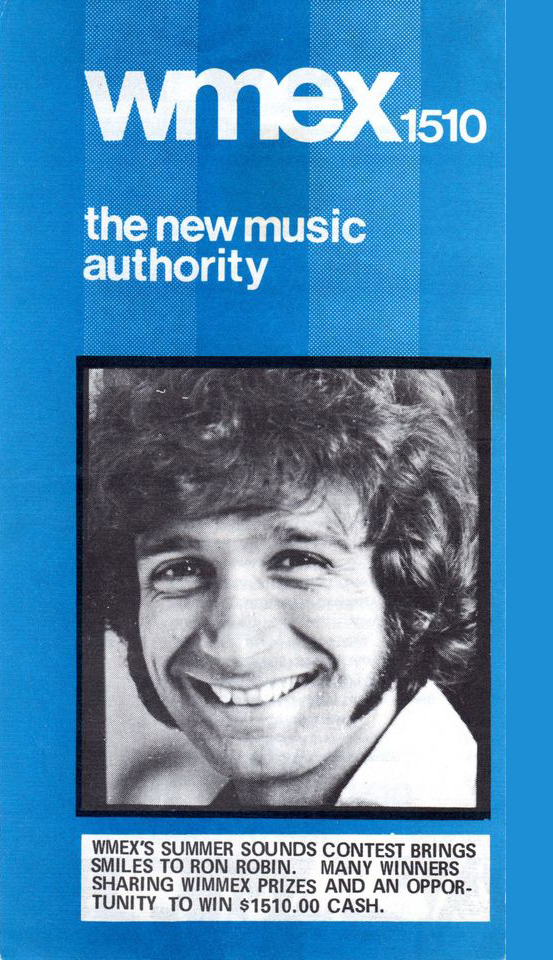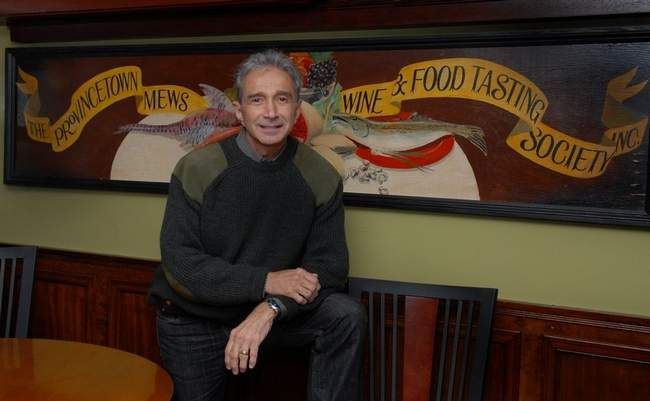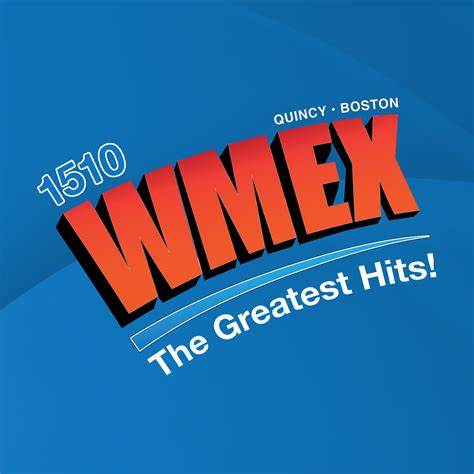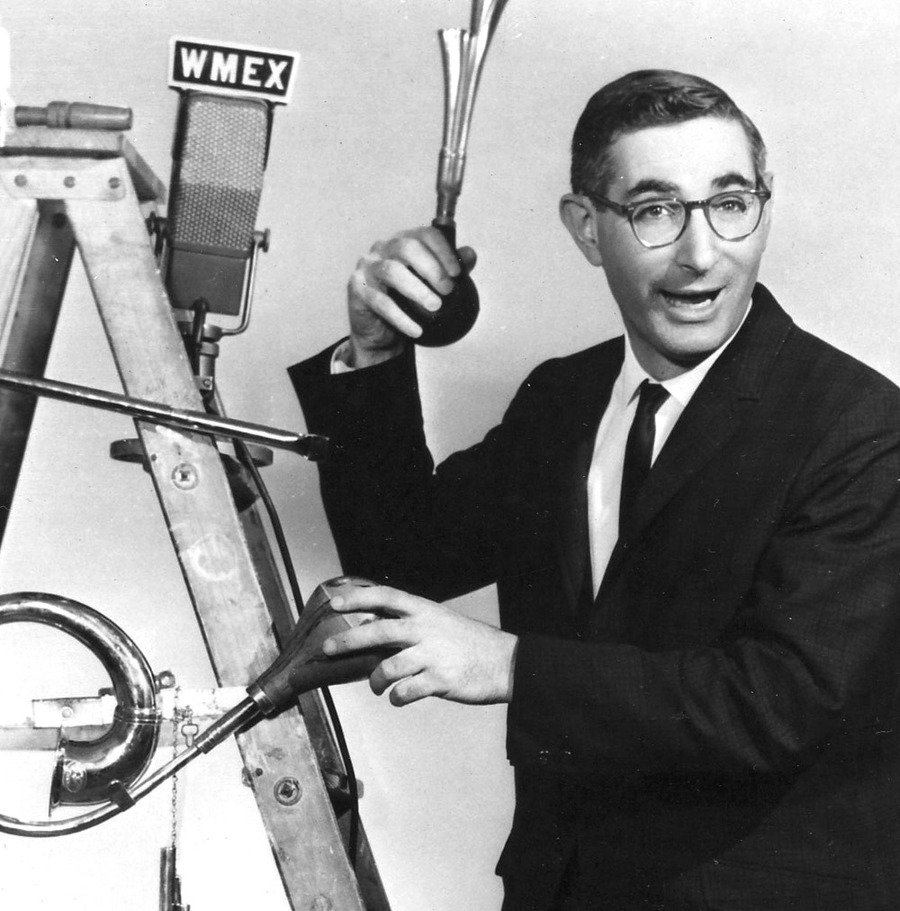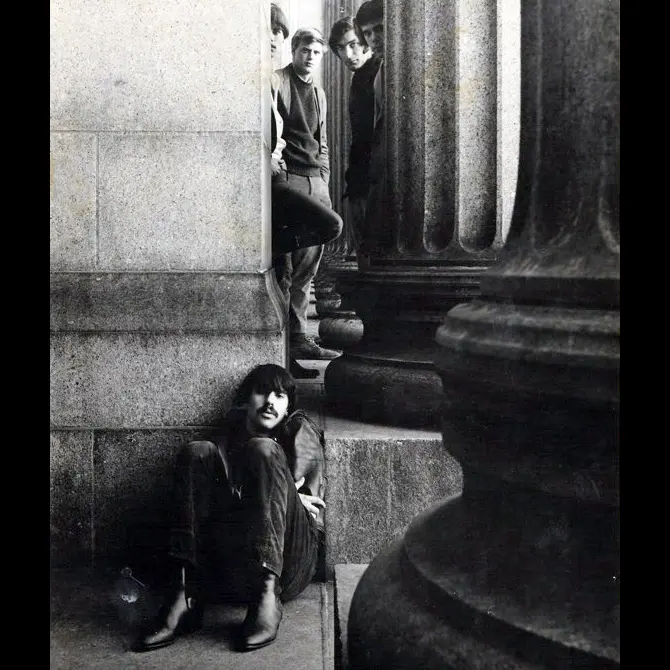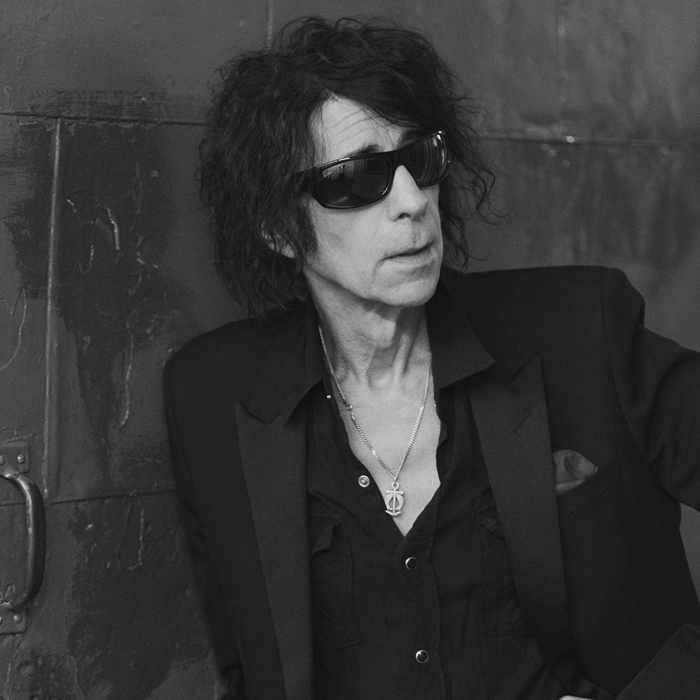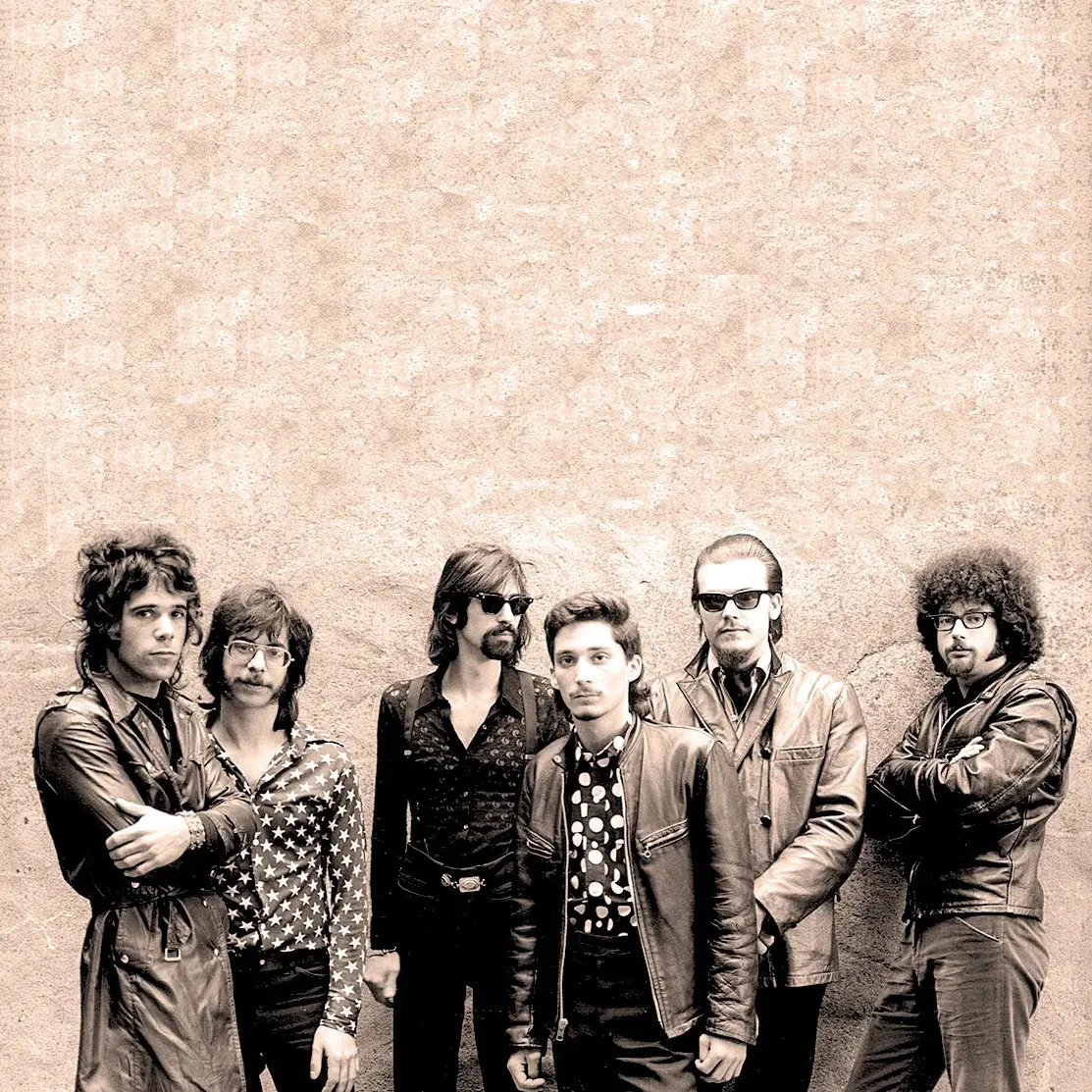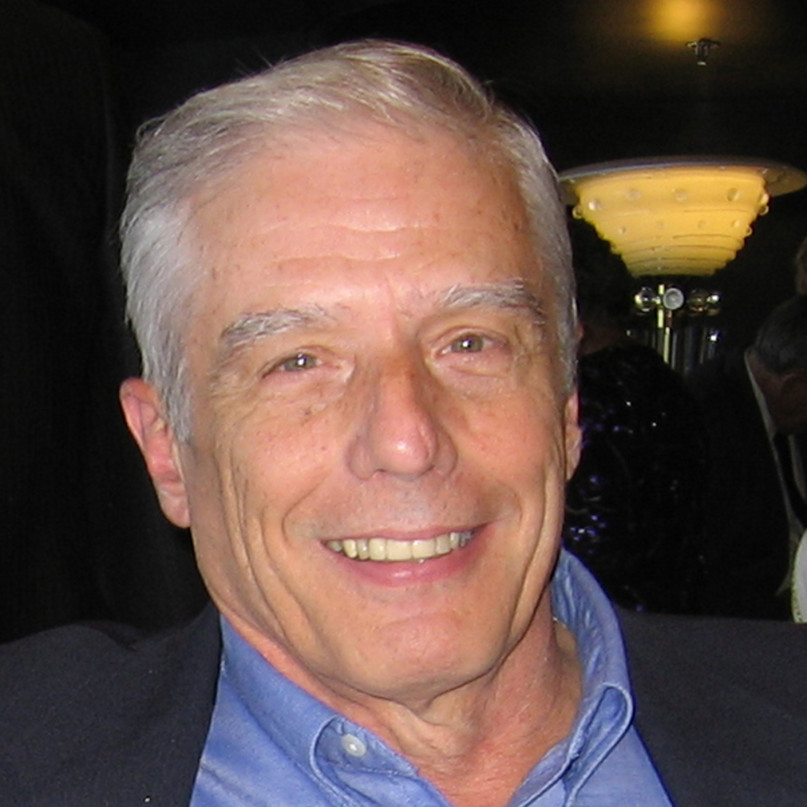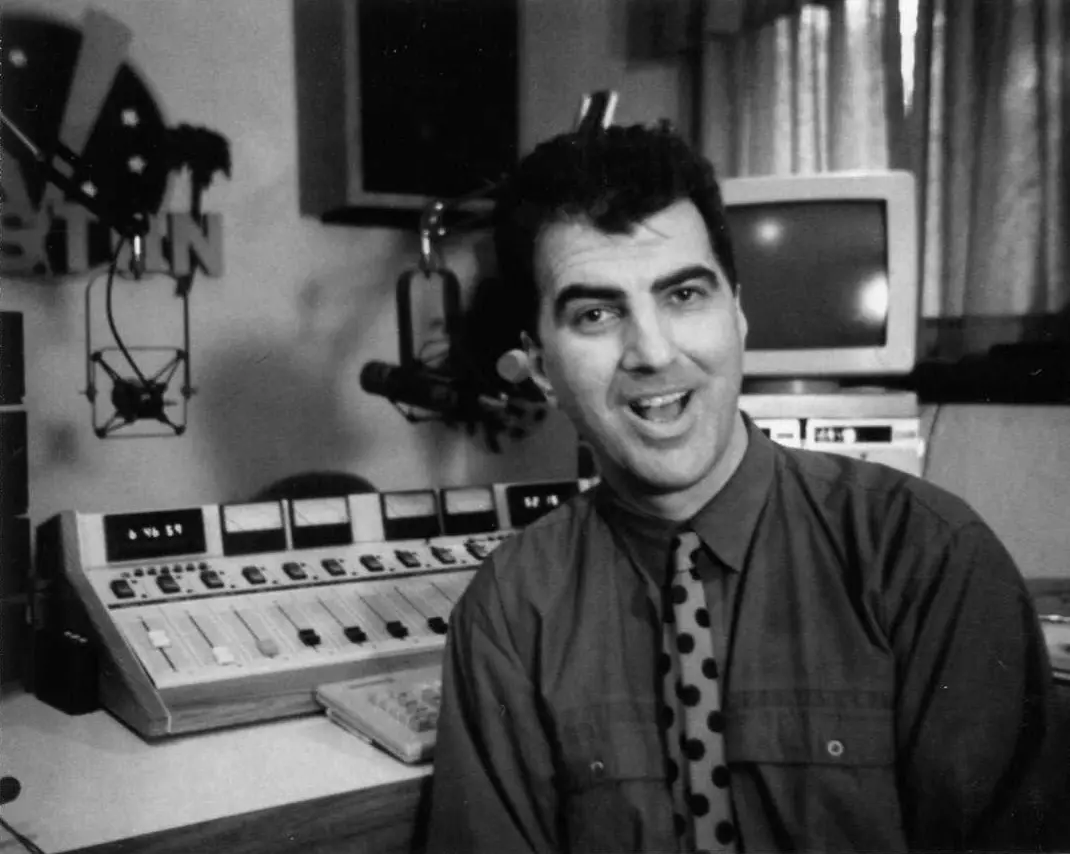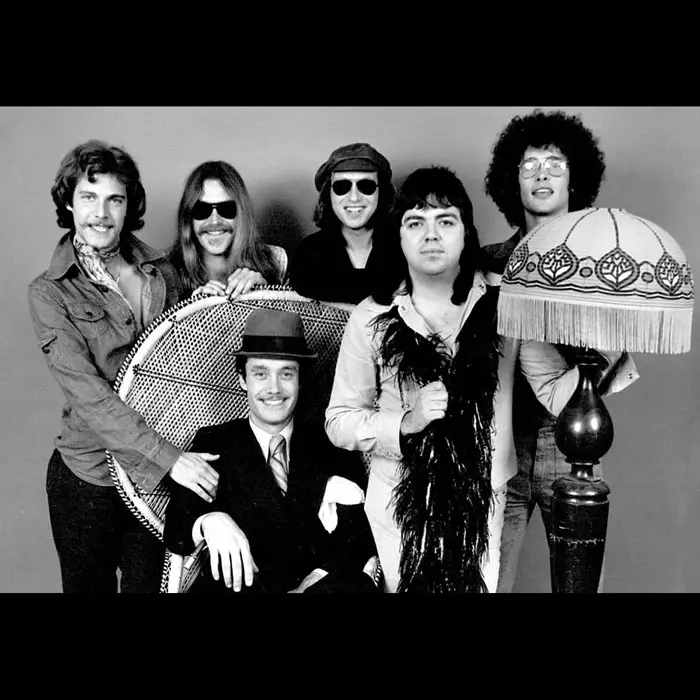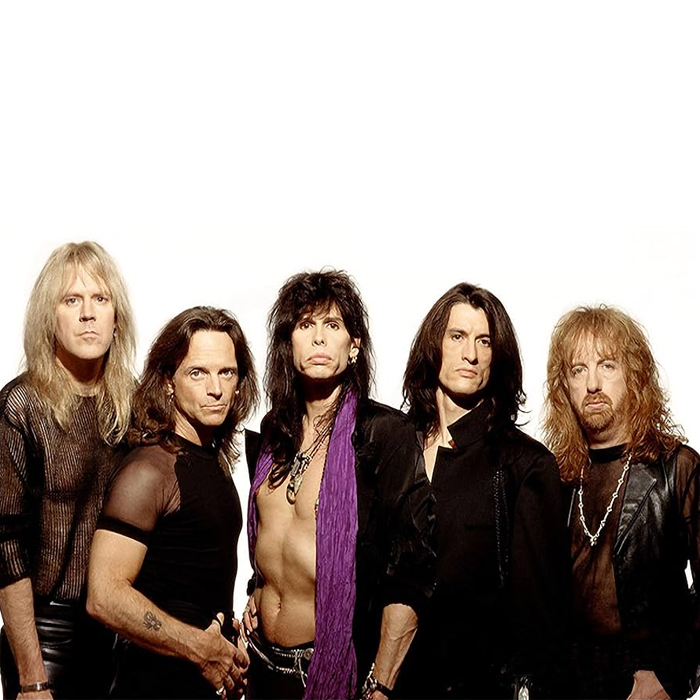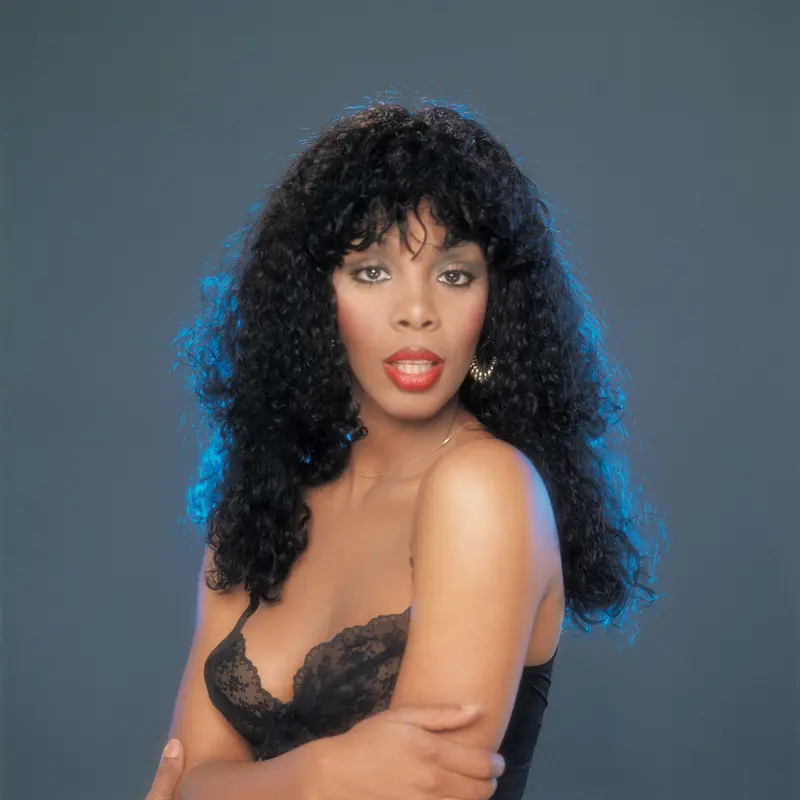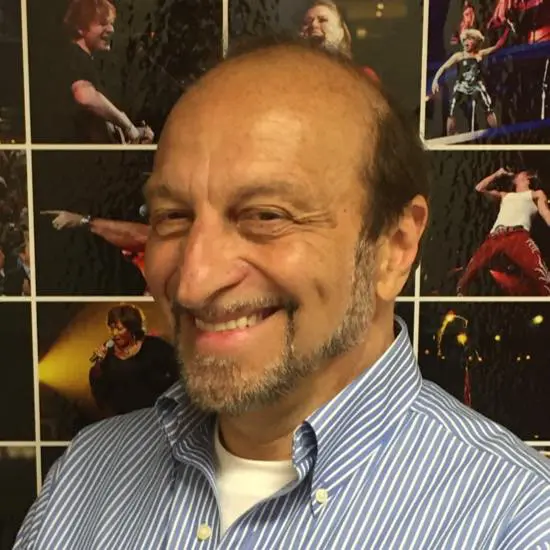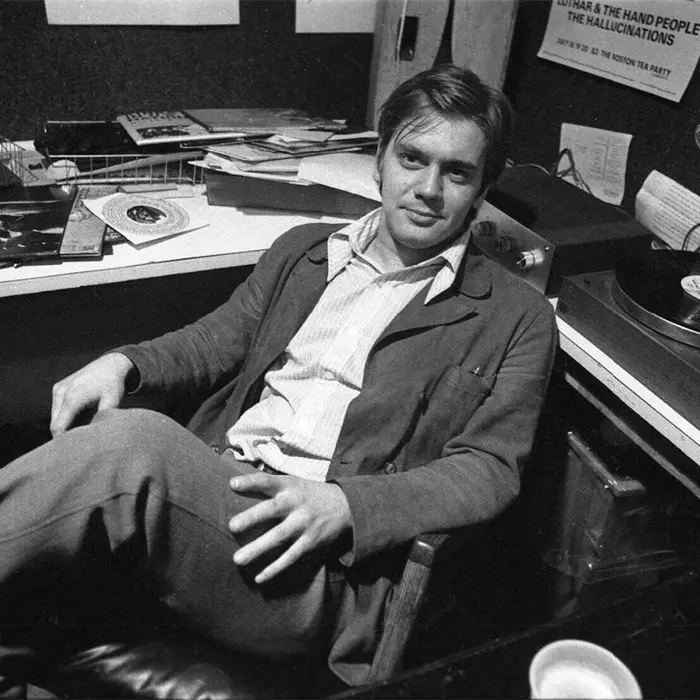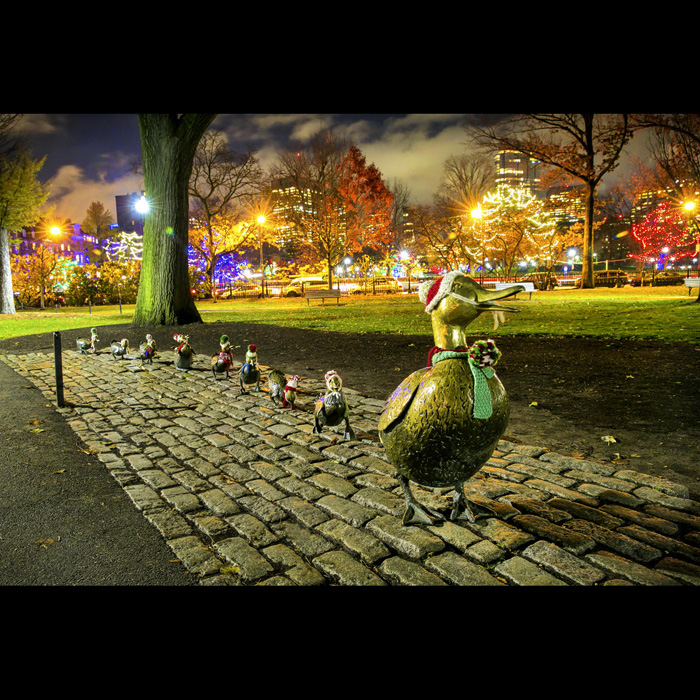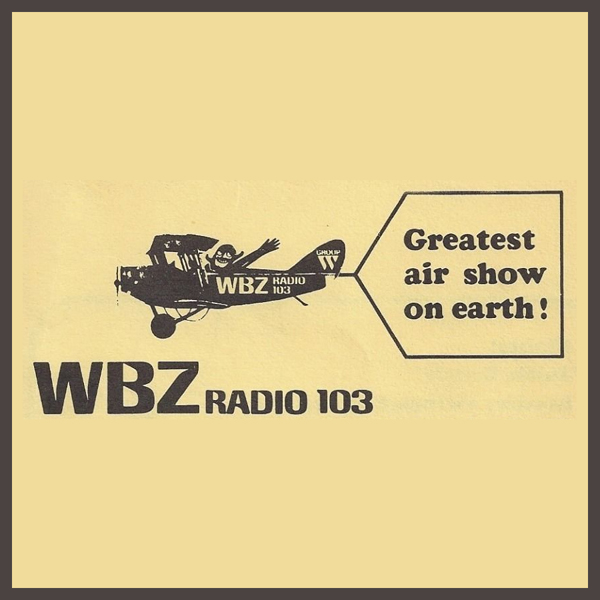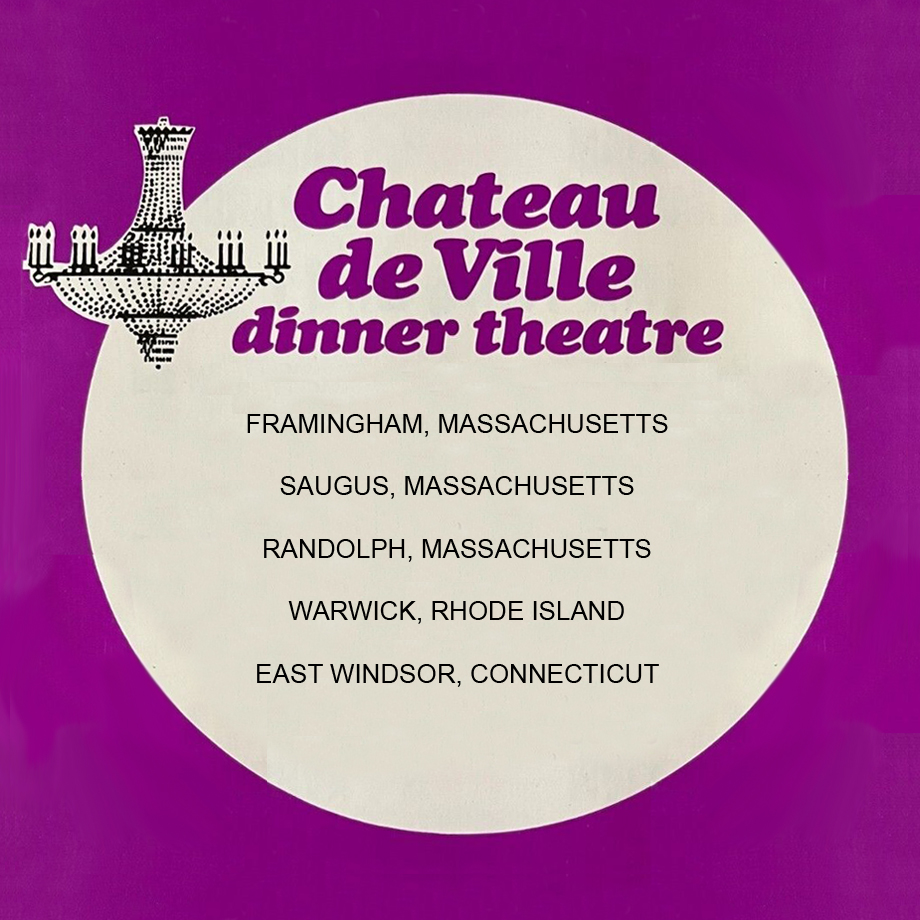Ron Robin
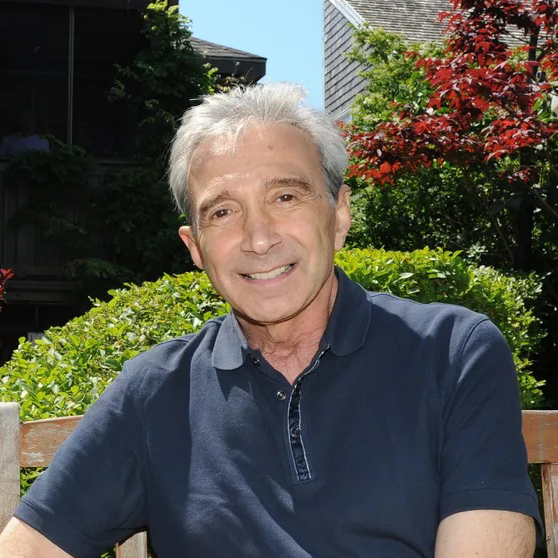
Born in Cambridge, Massachusetts, Ron Robin grew up in the North End of Boston where he lived in the same tenement as famed Boston deejay Bill Marlowe. As a child, instead of playing with his toy bowling pin set as most kids would have done, he used one of the pins as a hand-held microphone. His mother’s hand mirror, held along the side of his face, became a TV camera.
Yes, Ron Robin was destined to be in broadcasting.
Musical beginnings, WTBU, WECB
In his early teens, he listened to Boston’s wax-spinning legends Arnie “Woo Woo” Ginsburg and future Warner Bros., Elektra/Asylum and Capitol-EMI kingpin Joe Smith; he used to type out Smith’s top-10 list every week and distribute carbon copies to his friends. In his later teens, he became obsessed with the various teen dance shows on television and he appeared on a few of them, including Bob Clayton’s Boston Ballroom and Dave Maynard’s Record Shop Hop. On a very memorable trip to Philadelphia, he waited in line for several hours to be part of American Bandstand, participating in a spotlight dance with a very tall Southern girl he had met just 10 minutes before. At Boston’s Christopher Columbus High School he was the deejay at the weekly “Friday Night Hop.”
After graduating in 1960, he enrolled at Boston University where, of course, he became a deejay on their student-run station, WTBU. Two years later, he realized he needed courses in radio and television to become a pro, so he transferred to Emerson College where he became production manager and, naturally, a deejay at the college’s student-run WECB. It was there, in November 1963, that he had the dubious distinction of interrupting regular programming to read a bulletin from Associated Press saying President John F. Kennedy had been shot.
WERS, WLYN, “Ron Paul Carey,” “Rumple Carey”
Later at Emerson, he was assigned a shift for a folk-music program at the college’s WERS, despite the fact that he knew nothing whatsoever about folk music. That didn’t last long: Shortly after the program director came running into the studio after hearing him refer to Joan Baez as “Joan Bays,” the show was taken over by a more folk-familiar jock.
Learning from that experience and others, Ron went on to become station manager of WERS. He was elected president of the local chapter of Alpha Epsilon Rho, an honor society recognizing academic achievement among students in the field of electronic media, and he won the Man of the Year Award at his social fraternity, Alpha Pi Theta, where among his fraternity brothers was Henry Winkler, future star of ABC’s megahit television series Happy Days (as Arthur Fonzerelli, “The Fonz”).
In 1964, Ron landed a full-time announcing WLYN in Lynn, Massachusetts, and he stayed there through 1965, while still studying at Emerson, hosting an easy-listening show called Starlight Serenade. This is where he came up with the on-air pseudonym “ Ron Paul Carey.” Why three names? Here’s the story: His father was a drummer and he adjusted his family name of Polcari to his stage name, Paul Carey. Ron thought that name was cool but didn’t want to be called Paul, so he added his real first name and became Ron Paul Carey. Apparently, he was speaking a little too quickly every time he used his new moniker on the air and a listener called to say that he had a most unusual name: “Rumple Carey.” That became his nickname among his Emerson friends right up to his graduation in 1965.
WKBR, The Rumple Show, The Swing Thing, The Hallucinations
Upon graduation, Ron was presented with the Massachusetts Broadcasters Association Harold E. Fellows Scholarship Award. A week later he accepted a job as a rock ‘n’ roll DJ at WKBR in Manchester, New Hampshire. He kept his college nickname and welcomed his teen audience to The Rumple Show. This is where his teenage time spent listening to Arnie “Woo Woo” Ginsburg and all of his horn and whistle effects paid off. “Rumple” decided his claim to on-air fame would be a tambourine.
Ron’s endless energy at the station spilled over to creating a teen dance club, which he named The Swing Thing, at The Bedford Grove Rollerway in the neighboring town of Bedford. There he presented local bands and occasionally an out-of-town one. One night, The Swing Thing featured a newly formed blues band from Boston, The Hallucinations, which didn’t go over very well for the pop-music oriented crowd. A few years later, two members of that scrappy blues outfit, vocalist/harmonicist Peter Wolf and drummer Stephen Jo Bladd, became founding members of The J. Geils Band.
WMEX, “Rockin’ Robin,” Breaking “Hello It’s Me”
In 1967, he applied for a job at WMEX in Boston after Arnie Ginsburg left the station for WRKO. He got the job, but owner Mac Richmond didn’t like the name Rumple because he thought it sounded too much like “Rumble.” The owner told Ron in no uncertain terms that his on-air handle would be “Rockin’ Robin,” which was a dated name even for the late ‘60s but Ron was now on a Boston station and he was happy with Richmond calling him anything he wanted. After a couple of years, he began using the name “Ron” and the “Rockin’” part of his on-air moniker faded away.
At WMEX, he worked under several program directors, including the station’s early mainstay, Mel Miller, sister station WPGC’s Warren Duffy, the legendary deejay Dick Summer and a competing deejay at WFEA in Manchester who became a friend, John Garabedian. Along with his on-air work, Ron became the station’s music director. Toward the end of 1968, an SGC Records rep brought him a hard-driving new track by Todd Rundgren’s group Nazz called “Open My Eyes” and WMEX was about to add it to the station’s playlist when something bordering on the miraculous happened in Ron’s apartment.
He stacked a few 45s on the record player (remember those things?) and “Open My Eyes” accidentally flipped over, so the B side started to play; that’s when Ron heard “Hello It’s Me” for the first time. It was unlike any other song at that time. Ron tested the track out on the air and phone requests for it were over the top. Soon it went to #1 hit on WMEX, but it didn’t chart anywhere else in the US initially since no other stations were playing the B side of “Open My Eyes.”
Several months later, however, WRKO started playing the tune and by early 1969 it was being spun on several stations in New York City. Long after Nazz disbanded, Todd Rundgren recorded his own slightly more up-tempo version of the song in 1972. The Nazz version didn’t chart, but Rundgren’s went to #2 in the Cash Box Top 100 and #5 in the Billboard Hot 100.
WVBF, Television shows, Disco notes
Thanks to friend and former WMEX deejay Bud Ballou, 1972 was also the year Ron took a position at Framingham-based WVBF, which was the first Boston-area FM station to seriously compete with WMEX and WRKO (both AM stations) for the pop/rock music audience. Eventually, ‘VBF beat both in the ratings. He did a variety of shifts at ‘VBF and hosted several rock concerts from 1972 to 1978 including one featuring Duke & The Drivers outside of Boston City Hall and an Aerosmith show in May 1973, when “Dream On” was starting to climb the charts, presented by the Beverly High School Student Council and held in their Field House. General admission tickets cost $2.50.
Later In the ‘70s, Ron did several television shows on NBC Boston (channel 4) including Evening Magazine, For Kids Only and he filled in as the host of Lottery Live and Dave Maynard’s Community Auditions, among others. In 1975, he created a weekly, one-hour show which embraced the exploding disco scene. Disco Notes featured music mixes and interviews with local night club deejays and several recording artists including Donna Summer, Gloria Gaynor and Patti Labelle. While the show was quite popular, management decided that it was out of character for the pop/rock station and canceled it in 1977.
John Luongo, Record Pools, Leaving WVBF
Seeing that radio stations were getting promo copies of records but club deejays were not, Ron arranged a meeting between record distributors and nightclub deejays to change things. One of Boston’s most popular club deejays, John Luongo, took it from there, creating the third record pool in the US in Boston; the other two were on Long Island and in New York City.
While at WVBF, Ron worked at several discos including Boston Red Sox legend Tony Conigliaro’s Tony C’s in Nahant, the Chateau de Ville in Framingham and Randolph and others in Boston and the surrounding area. He saw that the disco trend was becoming gigantic and was sure that crossover to radio was a natural fit, so he quit WVBF and started looking for a radio station interested in a disco format. No luck.
Frustrated but determined, he bought air time on WBOS and hosted his Disco Notes show during his slot. He researched top-selling records and created his own top 10, which he printed and distributed to retailers (with memories of distributing Joe Smith’s top-10 list as a high schooler). He also sold his own radio time and did his own commercials. All of his efforts paid off, earning Ron major name recognition on the local scene.
Disco 93, Stage Door Disco
Because of his success and notoriety, he was hired as program director – along with Luongo and another top radio/club deejay, Vinny Peruzzi – for Boston’s first full-time disco station, Disco 93, which eventually reached #3 in the ratings. There were many memorable moments during that time, one example being a giant disco concert presented by Don Law and Disco 93 at Boston Garden featuring live performances by the top disco acts of the day.
Then there was the time that Ron and Gloria Gaynor will never forget: He was promoting and hosting an event that was to crown Gaynor “Disco Queen” and featured a performance at a Boston hotel. For the first time in her career, and for the first time ever in Ron’s, he had to walk onto the stage interrupting her performance to ask her to stop singing and to tell the audience to leave the hotel because of a fire in the building. In the late ‘70s, as the disco trend was waning but not quite over, Ron created, produced and hosted a dance music television show called Stage Door Disco on a local Boston television station.
KISS 108 competition, WBZ, WHDH, Current activity
With competing station WXKS (KISS 108) launching a massive advertising campaign for their disco format and WBOS’s management deciding it wasn’t financially viable to compete, Ron left Disco 93 to take a top-40 deejay gig at WBZ, which eventually turned to a talk show. He used his comedic skills to transform into an evening talk jock at the 50,000-watt station, its signal reaching as far west as Chicago and able to be heard in several Canadian provinces.
In 1980, after a brief stint at WHDH-AM, Ron moved to Cape Cod where he and his husband, Edmund Teo, own and operate WGTX-FM (“The Dunes, Classic Hits”) and The Mews Restaurant & Cafe in Provincetown.

